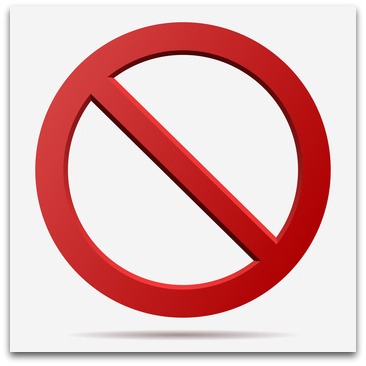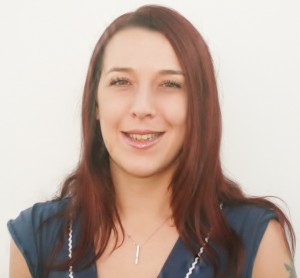Uncoachable clients
Uncoachable clients
by Jen Waller

A surprising number of searches arrive at this blog looking for an answer to a variation of the question “who is uncoachable?”
It’s not the only things searched for that lead people to the blog but it’s this one that caught my eye and inspired me to share some thoughts around the subject. First, I want to look at how we can use such a question as a prompt for ourselves as coaches, and use it for our own coaching practices. Later, I will also share some thoughts from the perspective of those doing the searching.
For coaches
All the variations of the questions searched for imply that it is the individual and not any behaviour they are using that is not conducive to being “coachable”. Which also potentially implies that it’s a condition that can not alter, a person is destined to be “uncoachable” for eternity once labelled as such.
![]() I’ll leave you, as a coach, to decide how those implications fit with your beliefs around coaching. I also invite you to consider how you would answer the question being asked “who is uncoachable?”
I’ll leave you, as a coach, to decide how those implications fit with your beliefs around coaching. I also invite you to consider how you would answer the question being asked “who is uncoachable?”
Consider this from a perspective of coaching in general as well as who you personally would consider uncoachable by you. Notice if there is any difference in your responses. It may be that your answers are exactly the same but it’s worth checking what answers come up for you.
Any coaching training you have already experienced may influence part, or all, of your answer(s). Perhaps you have been told that there are certain situations or types of behaviour you should not be coaching in.
Your answer may also have been influenced by an experience of working with a specific client in the past and it’s not an experience you wish to repeat!
Maybe you reason that you have learnt to look for specific signs.
Your answer may also be influenced by other beliefs and expectations about what behaviours a client should demonstrate. Equally, you may have expectations about behaviours a client shouldn’t demonstrate.
I’m not so interested in this post in saying which answers are right or wrong, I’m more interested in shining a light on how this works for you and your coaching.
If you have ever looked for a definition of coaching you will have found that different people and organisations use different wording (sometimes you’ll even find more than one definition from the same group.) So it’s not surprising that, whilst there are some overlaps, that different coaches have their own opinions about who is uncoachable.
As we’ve considered who is uncoachable, what about who is coachable? Are there any behaviours, characteristics etc that you specifically think make a great coaching client? Again, does your answer change if you consider coaching clients for all coaches and then your own specific ideal coaching clients?
![]() So, what are your answers?
So, what are your answers?
Once you’ve considered them, are they all actually true?
Having got these answers what are you doing with the information?
Is it information that is useful for you?
How can you use this information to build a coaching practice filled with clients you’d love to work with?
Obviously, it will depend upon the answers you came up with. Some coaches may find that they may want to tweak their marketing to make it less appealing to those they feel are uncoachable. It may also mean they can do more to encourage those that they feel are more coachable.
Alternatively, perhaps you realised that you have been unconsciously operating on assumptions and beliefs that you no longer think are true. Possibly it’s highlighted something you can include in your intake process to ensure that you are working with clients that are a great fit for you.
Maybe it’s sparked inspiration for a new program for those who you think are ideally coachable….
For those who have searched “who is uncoachable”
So what about those reading this because they have actually searched for a variation of “who is uncoachable”? Obviously, I’m going to have to guess at the possible reason for such a search and I came up with two potential reasons. (Feel free to comment below if you’ve searched and it’s for a different reason then the ones I’ve come up with.
1) You’re a coach in training and there is a training school somewhere that has asked their students to answer the question “who is uncoachable?”
2) You are interested in getting some coaching but for some reason suspect that either you personally or your situation is uncoachable.
If you’ve searched because you’re a coach in training:
Hopefully, for those in coach training I hope that the first half of this post has prompted some ideas. I would also encourage you to use your answers not just to be able to complete an assignment but to put it to use as you move forward with your coaching. I can only guess what your trainers and assessors are looking for in an ideal answer. I hope that they have given you pointers with your course so far.
Review what you have done so far in your training and the experiences you’ve had coaching. Are there situations and scenarios you feel don’t fit with your definition of coaching? Are there behaviours and characteristics you would want to look out for? What else would you want to know before deciding if a client was someone you wanted to coach?
How can you use knowing who is uncoachable to build your coaching practice? I know that the most common explanation I was given in some coaching trainings was that it is there to ensure that you don’t accept clients who would be better suited seeking other forms of support and help. (Which depending upon your country of residence may potentially have insurance/legal implications)
For those who are interested in becoming a coaching client and suspect you may be uncoachable:
Firstly, my own personal belief is that it’s not you personally who is uncoachable. You may be in a specific circumstance or situation where another approach other than coaching would be more appropriate to get the solution you’re looking for. This does not mean that you are any less “worthy” or that it’s a permanent diagnosis you’re stuck with forever.
Not knowing your precise situation I can’t rule out the possibility that in the past someone has said that you are uncoachable in response to a specific behaviour or attitude. If that’s the scenario you find yourself in, having not personally witnessed the initial situation, I can’t comment upon how appropriate the comment was at that time. I can say that behaviour and attitude can change, it’s not set in stone, and with a different coaching approach it may not be relevant.
To find out if coaching is right for you right now, the easiest way is to have a conversation with the coach who you’re interested in working with. Be honest with them and tell them your concerns. It may be that they feel that now isn’t the right time for you to work with them or that in their professional opinion another form of approach would currently be a better fit. Most coaches I know will point you in the direction of something or someone else if they already can see a better choice.
About Jen Waller
 Jen Waller is on a mission to support, nurture and encourage coaching skills and talents from non-coach to coach and beyond.
Jen Waller is on a mission to support, nurture and encourage coaching skills and talents from non-coach to coach and beyond.
As an experienced coach and trainer Jen is happy to utilise all skills at her disposal to assist clients from getting out of their own way and making a difference in the world with their coaching. One of the aspects of her role Jen loves the most is seeing individuals find their voice, grow their confidence and take the next steps. This allows them to make a massive positive impact and difference with their coaching. (For more info about Jen’s coaching click here, including the From non-coach to coach discovery session) Jen has owned and run Coaching Confidence, the coaching blog since 2010.
In her spare time Jen is a volunteer for the UK based charity The Cinnamon Trust. This charity supports elderly and terminally ill pet owners to provide care for their pets. As a volunteer, Jen regularly walks dogs for owners who physically often find that more challenging then they once did. As a pet owner herself, Jen finds it really rewarding to be able to assist an owner stay with an animal that has become part of the family. (Plus it’s a great additional motivator when working from home to get out and get some fresh air and exercise)
Jen also loves theatre and has been known to watch certain popular science fiction films and TV shows!

 Beth Burgess is a fully-trained Life Coach and a qualified NLP Practitioner. Beth’s background is in Social Care, supporting recovering addicts to attain their education and employment goals for a major charity. After seeing so many addicts held back by their own beliefs about themselves, she started her own Recovery Coaching business, Sort My Life Solutions (Smyls). http://www.smyls.co.uk
Beth Burgess is a fully-trained Life Coach and a qualified NLP Practitioner. Beth’s background is in Social Care, supporting recovering addicts to attain their education and employment goals for a major charity. After seeing so many addicts held back by their own beliefs about themselves, she started her own Recovery Coaching business, Sort My Life Solutions (Smyls). http://www.smyls.co.uk